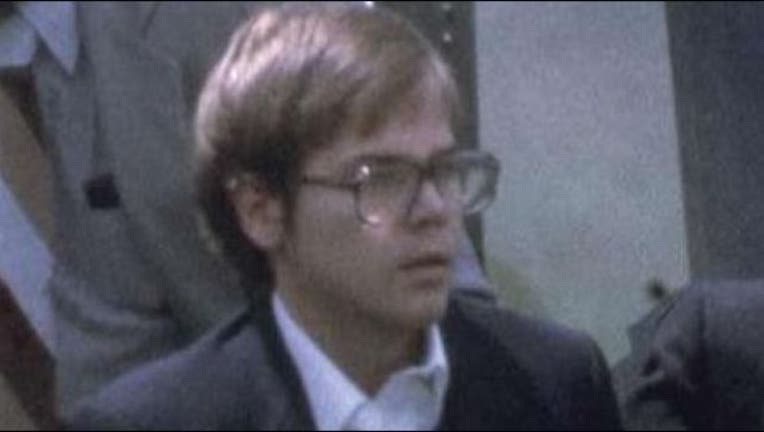Wounded officers struggle with news of Hinckley's release

WASHINGTON (AP) - John Hinckley Jr. shot four people outside a Washington hotel on March 30, 1981, but two of his victims understandably got most of the attention: President Ronald Reagan and his press secretary, James Brady.
Two other men — Secret Service agent Timothy McCarthy and District of Columbia police officer Thomas Delahanty — each took a bullet to protect the president. Thirty-five years later, they've lived to see Hinckley freed.
On Thursday, both were still coming to terms with the news that Hinckley, now 61, will soon be released from a Washington psychiatric hospital to live full-time with his 90-year-old mother in Williamsburg, Virginia. A judge ordered Wednesday that Hinckley can leave the hospital as soon as Aug. 5, with numerous restrictions.
The would-be assassin was found not guilty by reason of insanity, and he has gradually gained more freedom. For the past two-plus years, he has spent more than half his time at his mother's house in a gated community overlooking a golf course.
McCarthy, 67, the longtime police chief in Orland Park, Illinois — about 25 miles southwest of Chicago — has long followed developments in Hinckley's case through news accounts, so he wasn't surprised to hear about his release. He accepts it, he understands it, but that doesn't mean that he agrees with it.
"I have a lot of not very great Christian thoughts about him," McCarthy told The Associated Press in a phone interview Thursday. "It was a terrible act. It's unforgivable as far as I'm concerned."
Delahanty, 80, who has rarely spoken to reporters, said he's not crazy about the decision to release Hinckley but is resigned to it.
"That's their decision, I guess," Delahanty told The AP on Thursday, sitting in his apartment in Whitehall, Pennsylvania, a Pittsburgh suburb. "I'm probably not too enthused with it, but what can you do?"
McCarthy used to get a phone call to let him know every time Hinckley was about to leave the hospital to visit his parents or for other reasons, but eventually he asked for the calls to stop. However, he was a little annoyed that he wasn't told in advance about Hinckley's release. Instead, he found out when he was deluged with calls from reporters.
"I don't have to agree with it, but I expected it. There are very few cases that people, after a period of time, are not viewed as no longer being a danger to themselves or others," McCarthy said. "I hope they're right about it. It's a big decision. I give the judge credit. That's what he gets paid for."
He said he doesn't think much about Hinckley, but the assassination attempt altered the trajectory of his life. He recovered from the gunshot wound to his chest, was back on duty three months later and ended up serving another five years on the presidential protective detail — an unusually long time for that high-stress assignment.
He admired Reagan's good humor after the shooting — "I guess I forgot to duck" was one of the president's famous quips — and his ability to return to the job without any lingering effects. He felt a close bond with the president from their shared experience.
"He set a great example, not only for me personally, but for the country and the world," McCarthy said.
Reagan came closer to death than almost anyone knew at the time, but recovered fully. He died in 2004, and Brady died in 2014, his death later ruled a homicide resulting from the gunshot wound.
McCarthy was lucky that the bullet, designed to explode on impact, didn't damage vital organs.
"Another inch or two in the other direction and it could have been fatal," he said.
Delahanty, who was born and raised in Pittsburgh, served in the Navy for seven years and then worked on-and-off at a steel mill. He started with Washington's Metropolitan Police Department in September 1963 and, two months later, worked a funeral detail after President John F. Kennedy was assassinated.
Eventually, Delahanty was trained as a canine officer. It was because of his dog that he wound up helping protect Reagan on the day he was shot.
"I was with the K-9s and my dog was sick and I went out on the (presidential) detail that day, and that's it," Delahanty said. "It was my day off anyhow, so I wouldn't have even been there" had the dog not gotten sick.
As to the shooting itself, Delahanty said, "I really didn't see anything."
What he felt was a bullet hitting the back of his left shoulder. The fragmentation bullet damaged some nerves and prompted Delahanty's disability retirement that November. It caused some arthritis in the joint but, otherwise, doesn't bother him much.
He had surgery about a week later to remove most of the bullet, but doctors have told him a fragment likely remains.
"I haven't had X-rays in a while, but they tell me that something's in there yet," he said. "For the first year or so I had trouble. It's fine now."
Delahanty testified at Hinckley's trial, but never saw him otherwise. As a result, his impressions of the man are limited, as are his opinions on what's best for Hinckley's future. "I never talked to Hinckley. I saw him in the courtroom and that was the extent of it," he said.
"It's a terrible thing that he done," Delahanty said, adding that he has no opinion on whether Hinckley should have remained locked up.
"I mean, that's what they did. The judge said that, the doctor said that. They signed off on it, so ..." Delahanty said, not finishing the thought. "That's basically all I can give you."
___
Mandak reported from Whitehall, Pennsylvania.
___
Follow Ben Nuckols on Twitter at https://twitter.com/APBenNuckols.

